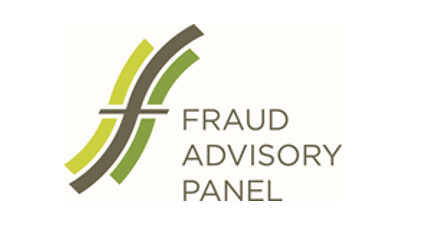Perpetuity Research are pleased to share their latest report entitled “The mandatory reporting of fraud: Finding solutions and sharing best practice” commissioned by the ACFE UK Chapter and the Fraud Advisory Panel.
The aim of this research was to understand the attitudes of those who deal with tackling fraud towards introducing a mandatory requirement on organisations to report fraud in England and Wales. At present, there is no legal requirement for an organisation to report a fraud to law enforcement should one occur. This is in contrast to money laundering, where those operating in the regulated sector have a duty to prepare a suspicious activity report (SAR) should an offence be suspected.
There are benefits to fraud reporting, such as building up an intelligence base on which to formulate response strategies, and also to encourage organisations to take more responsibility for managing fraud. But there are also disadvantages. It may be seen as administratively burdensome and therefore expensive, while policing the requirement is also a challenge.
The report findings are based on a survey of fraud and other professionals; in-depth interviews with experts in this area; and discussions from online webinar and roundtable events. They show that survey respondents were generally in favour of making the reporting of fraud mandatory. However, support was qualified by a need to clearly articulate the purpose and benefits of doing so, in order to garner organisational support and compliance, and to determine the scope and form of reporting. The ability to successfully agree these was identified as a potential barrier to implementation. Other barriers included concerns about the reputational consequences of reporting, and many were not convinced that the potential benefits outweighed the likely costs.
In terms of what form mandatory reporting should take if introduced, generally, respondents favoured introducing new or extending existing legislation over, taking a less authoritative route using good governance guidelines (for example, by instituting a requirement to submit an annual fraud return). But some felt that making the non-reporting of fraud a criminal offence was a step too far, instead favouring other sanctions such as fines.
Some respondents were however, against mandatory reporting altogether; law enforcement is already burdened, and this would make it worse. Many felt that there was already a high-level of current reporting (on a diverse range of financial issues) required by organisations; and data already reported to agencies is not currently being used to optimal effect. The lack of an international good practice reference point fuelled scepticism for others.
Professor Martin Gill, Director of Perpetuity Research, said:
We commend the Fraud Advisory Panel and the ACFE for tackling this controversial matter. The pros and cons of suspicious activity reporting (SAR) for anti-money laundering are well understood, but little is known about how, or if, something similar could work for fraud. What the people involved in tackling fraud actually think about mandatory fraud reporting should be central to that debate, but no-one had asked them, until now.
Dr Janice Goldstraw-White, who led the research noted:
Compelling arguments were given both for and against the introduction of mandatory fraud reporting. Therefore, if it is to succeed, organisations need to support it and before that there are a number of barriers that need to overcome so that it does not become an overly administrative burden. It was perhaps surprising that organisations favoured a more legalistic route to introducing mandatory reporting compared to a governance one, which could be introduced in stages and even on a voluntary basis at first. This timely research paves the way for the government to put tackling fraud higher on its agenda and to consider the various options outlined in this report for its implementation.
To view a copy of the full findings, please click here
To view the infographics associated with this research, please click the links below
Mandatory Reporting of Fraud
Overcoming Barriers to Reporting Fraud
Mandating the Reporting of Fraud for Organisations



